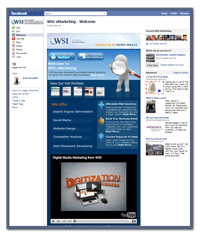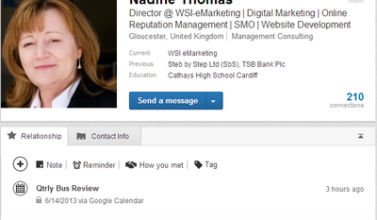
Technology has allowed many people to work from home but the trend hasn’t reached the level it could. Working remotely has mostly been associated with digital nomads travelling the world whilst staying connected, but all that has changed.
Until now, working remotely has been an occasional treat for many office-based workers but millions of people have been asked to work from home. This was a necessary step considering the unprecedented times of uncertainty we face around the coronavirus (COVID-19) outbreak.
Working remotely has become a big topic of conversation but not everyone knows how difficult it can be. Business owners must understand how to keep their isolated workforce safe, engaged and able to perform their roles effectively. Here are some tips to manage remote teams.
Working Remotely Is All About Communication
While communication should always be the core of any management strategy, it takes on a whole new level in times of uncertainty. It’s important that remote workers continue to feel connected and informed which can take on several forms. This could be your CEO hosting a weekly video briefing for the entire company or individual line managers catching up over the phone.
The type of communication will, of course, depend on the company but it should include updates on business and strategy-related matters. Also communicating positives to your team is certainly worthwhile whenever possible. Examples of this can be digitally celebrating a colleague’s birthday, work anniversary or the successful completion of an ongoing project.
During these testing times, it’s even more important to recognise and communicate success to uplift team spirit wherever you can.
Being positive won’t guarantee success but being negative will guarantee you won’t.
Jon Gordon
Working Remotely Doesn’t Mean 24/7 Availability
While its business as usual, for the most part, one of the biggest challenges in working remotely is the change in routine. Another obstacle is the absence of organisational structure at home. For many, the disruption caused by long periods of remote working can be unsettling. That means team leaders should retain as much normality as possible. Wherever you can, have regular meetings as planned and try to keep the daily schedule mostly the same.
For those with a 9 to 5 job, the best solution is to retain the usual working patterns and setting clear boundaries. This will help ensure that employees know when to work and when to switch off. This will reduce the level of pressure to be constantly available. Working remotely doesn’t mean pushing employees to go at it 24/7. It’s important to keep within normal work hours as much possible.
Offer More Flexibility When Working Remotely
Under normal circumstances, flexibility is a privilege, not a necessity where remote workers need to commit and do what they need to. However, with COVID-19 surrounding everything we do, things are much different. Businesses need to offer more flexibility and adjust to the fact that some people may have new commitments. This can be childcare or caring for a sick relative among other priorities.
The good thing about working remotely is that it allows managers to offer different hours to those who need it. This can lift a huge weight off the shoulders of an already stressed-out employee. For some, flexible remote working plays to their strengths. A US study of remote workers actually revealed a 78% increase in productivity and focus.

Be Reasonable With Expectations And Targets
Considering the current state of affairs, it’s understandable that employees may not be performing at their best. The new challenges of working remotely along with added financial and emotional pressures, it is likely to result in reduced performances and more stress. Business owners must remember this when doing employee reviews and performance meetings
To be successful at working remotely and managing the team properly, success lies with team members and managers. Team leaders must reassure staff that they have their complete support for whatever they need to succeed. This could be offering meditation sessions, a bespoke work plan, extended deadlines or sessions with a coach or mentor to discuss next steps.
Whatever you decide to do in terms of rating staff progress, take a compassionate and measured approach. It will help you to get the best out of your staff while ensuring their ongoing well-being.
Keep The Human Connection Strong
As more countries go into various stages of lockdown or quarantine, it’s crucial to help staff who are feeling isolated or lonely. Consider giving remote workers a quick call instead of an email or instant message. This can help alleviate these feelings and also reduce issues as a result of limited social cues typical within an office environment.
Businesses should encourage video calls over phone calls and certainly phone calls over emails and instant messaging. There are several digital HR resources to help manage employee well-being and mentoring, including digital coaching and employee feedback solutions during difficult times. While technology may be the answer to many problems, there is often no substitute for keeping the human connection strong.

The Bottom Line Isn’t Everything
The most important thing business owners must remember in these difficult times is that there is much more to life than the bottom line. Employees are people, each with their own personality, needs, concerns and personal situations. We must all do our utmost to show kindness in our common humanity.
Many may feel that working remotely can be impersonal and isolating but if your business uses the right kind of personalised approach, it will ensure staff continue to feel supported and engaged. This will enable them to do their jobs in a safe and considerate environment.
Final Thoughts
With remote workers, it’s best to put parameters in place alongside your teams’ flexible schedules. This will show everyone when colleagues are working and when they are not. It is one way to help ensure remote staff don’t feel pressured into being present all the time.
As technology continues to simplify our personal and professional lives, we need to remind ourselves that there is an actual person behind every email. They may even have the same concerns, fears and emotional needs as you do.
We encourage everyone to stay at home and for businesses to provide remote working opportunities for those who can. Let’s all work together and make tomorrow a little brighter.
Recommended: ‘Number of coronavirus (COVID-19) cases and risk in the UK’
WSI eMarketing Remains Operational
Due to the nature of our business, WSI eMarketing will continue operations digitally, helping our clients with their mission-critical processes. If you need advice or have any questions about how we can help you, please get in touch for a free consultation.
We specialise in all things digital marketing including social media management, content creation, email marketing and marketing automation among others. During this time of crisis, we can also help with your online reputation management as we have teams working remotely.
Related Post
Effective Facebook Marketing...
With over 600 million users, Facebook represents the single most connected platform on...
- March 1, 2011
- By Nadine Thomas
- Latest Online Trends
Content Sharing Via Social...
Target marketing to meet your business goals Is your business using social media channels...
- June 15, 2011
- By Nadine Thomas
- Digital Marketing
Can you get help to fund your...
If you need a new website, it’s possible that you could get help towards the cost....
- May 30, 2013
- By Rob Thomas
- Digital Marketing
10 Best Ways to take...
Others may have seen a pop-up ‘invitation to upgrade’ message when they accessed...
- June 1, 2013
- By Rob Thomas
- Digital Marketing
Google Hangouts – 6 Ways...
Google+ was launched just 2 years ago in June 2011. In the first 6 months of its...
- June 24, 2013
- By Nadine Thomas
- Digital Marketing
6 top tips on how to get the...
In Europe alone there are 243.2 million Facebook subscribers (internetworldstats, 2012)....
- July 3, 2013
- By Nadine Thomas
- Digital Marketing











Leave a Comments